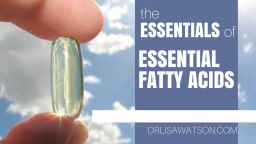
So much emphasis is placed on the treatment of female infertility – but with up to 40% of infertile couples struggling with male infertility it’s time for men to understand how they can improve their chances of becoming fathers.
Understanding Male Infertility
The most common causes of male infertility are sperm-related factors. Low sperm counts, low sperm mobility or a high number of abnormal can all cause difficulty in achieving pregnancy with your partner.
There are many ways in which sperm can be damaged – medical treatments for cancer, childhood illnesses, environmental and lifestyle factors and poor diet can all contribute to unhealthy sperm. But luckily most of these factors can be modified, restoring your fertility and improving your overall health.
Environmental Factors Affecting Male Fertility
Household Cleaners
The Environmental Protection Agency (EPA) has found that levels of pollutants are three to five times higher in homes than they are outdoors. Terrifying isn’t it? The chemicals found in household cleaners can have negative cumulative effects on sperm production. Switching to all natural cleaning agents is a good first step towards achieving your fertility goals, and a great step towards preparing your home for a baby.
Extreme Temperatures
Reproductive disorders are one of the top ten work-related disorders for both men and women. Dangerously high temperatures associated with certain vocations are especially damaging to male fertility. High temperatures impact the development of sperm and can impact sperm counts, motility and number of normal sperm for up to 3 months past the time of exposure.
Lifestyle Factors Affecting Male Fertility
 Smoking
Smoking
Sperm are very sensitive to oxidative damage and smoking is a major cause of oxidative damage in the human body. Smoking (cigarettes, cigars, marijuana) can all lead to decreases in sperm count, motility and increase the number of abnormal sperm.
Perhaps even more troubling are the impacts of the offspring of smokers – babies whose father’s smoked have a 33% increase in the risk of developing childhood cancer.
Alcohol Consumption
In preparing for fatherhood, it is recommended that men avoid alcohol, or limit their consumption. As little as four drinks per day can significantly lower sperm counts and damage sperm.
Avoid MSG and Other Food Additives
Monosodium glutamate, or MSG is a common food additive. It is found in many packaged prepared foods to “enhance natural flavours”. However, MSG is damaging to male fertility, decreasing his chances of achieving a pregnancy with his partner by up to 50%.
Boxers or Briefs?
Extreme temperatures may be damaging to sperm production, but wearing tight-fitting briefs over boxers doesn’t seem to make any difference at all. A study comparing scrotal temperatures of men wearing boxers or briefs found no difference in temperature – meaning you can wear whichever you are most comfortable with.
Diet and Nutrition for Male Fertility
There are many nutrients that are involved in sperm production, as well as in maintaining the health of the sperm. Deficiencies in any one of these nutrients can negatively impact fertility and should be treated as soon as possible to prevent further struggles with infertility.
While a nutritious diet is the cornerstone of health, using appropriate vitamin and mineral supplements can allow you to fine-tune your fertility. Speak to a qualified Naturopathic Doctor before beginning any of these supplements to make sure they are appropriate for you.
 Folic Acid
Folic Acid
This vitamin is not just for female fertility. Folic acid concentrations of semen are associated with sperm count. It acts an antioxidant and is needed by all rapidly dividing cells – including sperm. With less than 64% of men getting their recommended daily amount (400mcg) this is a common nutrient factor in male infertility. Good food sources include beans, green leafy vegetables and sunflower seeds.
Vitamin A
Essential to sperm production, a deficiency in vitamin A has been directly linked to infertility in men. If a deficiency exists, supplementation can improve sperm counts – it won’t help if you aren’t deficient.
Vitamin C
Vitamin C is an important antioxidant and is necessary for the health of sperm. A low vitamin C intake is associated with an increased number of abnormal sperm. Supplementation can effectively raise vitamin C levels in the semen and improve sperm counts, motility and decrease the number of abnormal sperm.
Zinc
Known as the “manhood” mineral, zinc is naturally secreted by the prostate and is found in semen. Even a slight deficiency in zinc has been found to lower testosterone levels and result in low sperm count and decreased motility. The worst part is that 79% of men are consuming less than the daily recommended amount of zinc (11mg). Good food sources are nuts and whole grains. But be cautious with supplements – taking too much zinc can be toxic to sperm and result in infertility. Taking zinc with folic acid has also been shown to be more effective compared to taking either in isolation.
L-Carnitine
Made in the body from amino acids, men who take supplements of L-carnitine can significantly increase their partner’s rate of pregnancy. L-carnitine doesn’t increase sperm counts, but it can increase motility and increase the number of normal sperm. L-carnitine also serves as an energy source for sperm, allowing them to survive long enough to find and fertilize an egg.
N-Acetyl Cysteine and Selenium
Functioning as antioxidants, these nutrients are often used in combination to protect sperm from the damaging effects of free radicals. When taken appropriately they can also enhance sperm count and other measures of sperm health. The best part is that these nutrients have no adverse effects and are safe for almost all men.
Botanicals and Acupuncture for Male Infertility
 There are many different botanical (herbal) medicines that can improve male fertility. Antioxidant herbs, libido-enhancing herbs, immunomodulators, and adaptogens can all be used when indicated to support infertility. It is important to take botanicals only as directed and to work with a Naturopathic Doctor to understand which botanical medicines are safe and effective for you.
There are many different botanical (herbal) medicines that can improve male fertility. Antioxidant herbs, libido-enhancing herbs, immunomodulators, and adaptogens can all be used when indicated to support infertility. It is important to take botanicals only as directed and to work with a Naturopathic Doctor to understand which botanical medicines are safe and effective for you.
Acupuncture can also be used in the treatment of male infertility to remove obstacles to health and restore balance to the whole body. Several Traditional Chinese Medicine diagnoses can lead to male infertility – a Kidney Essence deficiency, a Damp Heat accumulation or a Blood and Qi stagnation. Talk with your Naturopathic Doctor to understand if acupuncture is a useful treatment for you.
Disclaimer
The advice provided in this article is for informational purposes only. It is meant to augment and not replace consultation with a licensed health care provider. Consultation with a Naturopathic Doctor or other primary care provider is recommended for anyone suffering from a health problem.
















